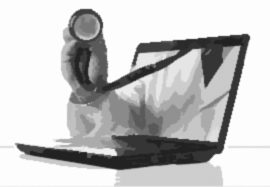
by medicaltechont | Mar 16, 2014 | Cloud, e-Health, EHR, Healthcare, Technology
N.B. Medical Society facing criticism from members about patient record software. The New Brunswick Medical Society is finding itself on the defensive against criticism from its own members who are questioning its handling of a new electronic medical record (EMR) program. Launched in partnership with the private information technology company Accreon, the software is sold under the business name Velante.
Only 240 of 950 eligible doctors have signed up for Velante, one month ahead of the March 31 deadline to receive government subsidies.
But, according to Health Minister Ted Flemming, only 34 doctors are currently using it.
‘We feel we’ve been pushed aside.’
– Dr. Sarah Charlebois
Many doctors, such as Dr. Sarah Charlebois, an Oromocto family physician, are using other systems.
Read more

by medicaltechont | Jan 2, 2014 | Cloud, e-Health, eHealth, Ontario, Privacy, Technology
We are using the cloud more and more. As Internet connections get faster and more reliable, the convenience of having all our data available on all our devices becomes ever more attractive.
However, there are disadvantages to using cloud services, particularly the free of charge ones that still have to make a profit somehow. There are many valid, albeit scary, questions you’ll want to mull over before trusting a third party to keep your data safe and we’ve listed them below.
The answers, as you will discover, in this feature are generally not what you want to hear:
- Privacy – is your data stored or is it being mined for advertising and marketing purposes?
- Reliability – can you be certain that the service you’re using will always be available? What guarantees do you have regarding the safety of your data and is there anything you can do to improve this?
- Security – is your data encrypted? Who has access to the encryption keys? Could your data be hacked or stolen?
- Continuity – Can the cloud provider suspend or cancel your account, possibly even losing all your data, for any reason?
- Performance – Is your Internet connection fast enough to use the services you want without delays?
- Copyright – who owns the content you upload? Can your photos be sold or published without your consent?
Read more

by medicaltechont | Nov 9, 2013 | Education, Google, Technology
University of Alabama at Birmingham surgical team has performed the first surgery using a virtual augmented reality technology called VIPAAR in conjunction with Google Glass, a wearable computer with an optical head-mounted display. The combination of the two technologies could be an important step toward the development of useful, practical telemedicine.
VIPAAR, which stands for Virtual Interactive Presence in Augmented Reality, is a UAB-developed technology that provides real time, two-way, interactive video conferencing.
UAB orthopedic surgeon Brent Ponce, M.D., performed a shoulder replacement surgery on Sept. 12, 2013 at UAB Highlands Hospital in Birmingham. Watching and interacting with Ponce via VIPAAR was Phani Dantuluri, M.D., from his office in Atlanta.
Read more
by medicaltechont | Nov 8, 2013 | Google, Technology
In the future will everyone be connected? This is an amazing development, however what does this mean to our society and how we interact with others?

by medicaltechont | Oct 26, 2013 | Software, Technology
Open-source software may seem like a cheap way to equip your organization with the tools it needs to compete in today’s information economy, but beware: open-source software does have its risks.
THERE IS NO SUCH THING as a free lunch, so they say. And while one might be tempted to argue with that line when it comes to open-source freeware, remember this: if time is money, then programmers and designers have already donated millions of dollars toward writing codes and designing user interfaces for that open-source freeware.
Open-source freeware is not just expensive to produce, however. As many companies have found out, open-source solutions can also be quite pricey – and risky – to maintain over the long run. True, it does not cost you anything to download a program and install it. But what happens after that? Is the program as secure as it says it is? Can you trust the guy who operates the download website? Will the freeware receive upgrades into the foreseeable future? Is it even compatible with other software?
“My firm was spending so much time and effort trying to save a few thousand ringgit, but in the end, we decided it just wasn’t worth the risk,” says Subramaniam, a lawyer who recently experimented with an open-source office suite at his law firm but who quickly abandoned it in favour of a proprietary solution. “Being prudent is one thing; being cheap is quite another.”
Read more at Microsoft

by medicaltechont | Oct 25, 2013 | emr, Technology
Ninety-six per cent of Canadians think it’s important that the health care system make use of digital health tools and capabilities, and 89 per cent feel it is important that they personally have full advantage of digital health tools and capabilities, according to a new survey by Harris/Decima, released by Canada Health Infoway (Infoway).
Other key findings from the Harris/Decima report include:
86 per cent of Canadians agree that digital health will provide health information to a care team in an emergency situation
86 per cent of Canadians believe it is important that their doctors use electronic medical records
90 per cent of Canadians who access their own health information online describe the experience as positive
Every day, more of Canada’s health care system goes digital. It’s a private, secure and effective way to make health care better, for all of us. Today, patients like Alexa Thompson use digital health to help manage their care and wellness.
Read more






